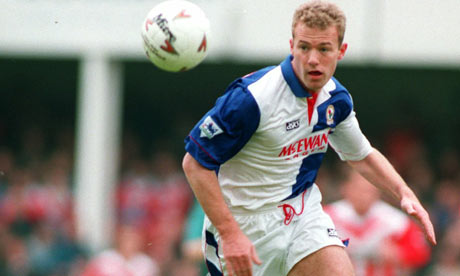
On Sunday is renewed one of organised sport's most ancient team rivalries when Burnley make the short journey to Blackburn Rovers' Ewood Park. It will be the first of the fabled "cotton-mill derbies" to be played in the 17 years of the Premier League and local boasts and tensions have been nicely bubbling since Burnley's dramatic promotion was sealed at Wembley in the spring.
Blackburn and Burnley were two of the 12 auspicious trailblazers who formed the Football League (annual subscription two guineas) at Manchester's Royal Hotel on 17 April, 1888. Only three clubs of that debutant dozen are still based at their original home – these two and Preston North End.
In 1888, of course, Blackburn and Burnley were at the very throbbing hub of the world's intense cotton industry and although both the stadiums and the manufacturing landscape have changed beyond all recognition, at lunchtime on Sunday any romantic historian will be able to half-close his eyes and picture the terraced hillside of flat caps jampacked under the foggy fug and pall of tobacco smoke and, if he cocks an ear, imagine he hears again the urgent hiss of railway steam, the clink-clunk-clang of the tram, the clack of clogs on the cobbled streets and even, faint and fond in the distance, the warmly earnest rhythms of a brass band at rehearsal.
Certainly I did when, entranced, I first squeezed into a packed-out midwinter Blackburn Saturday 40 years ago in the 1960s – and that was even before Hovis bread chose Ewood Park for its soppy, sentiment-sodden sepia-washed television advert.
After the momentous Manchester meeting in the spring of 1888, the neighbours' first derby was at Burnley's Turf Moor that early November when, on "a day of wind and driving rain", the Rooney of his day, Blackburn's England international Jack Southworth inspired Rovers' 7-1 victory, the ferocity of his opening goal apparently bursting the ball. When not footballing, Jack was a leading violinist for Manchester's Halle orchestra and later, for another 30 years, was a popular member of the Pier Pavilion orchestra at Llandudno.
Cotton-mill derbies continued to be passionately charged. For the match at Burnley in 1891, the FA's domineering martinet and president-to-be, Sir Charles Clegg, came over from Sheffield personally to referee – and in no time the Blackburn team had walked from the field and refused to surrender the ball in protest at a disallowed goal.
Blackburn probably had fable's grander cast – at the beginning of the last century there was the illustrious Bob Crompton, in the middle of it the cultured Ron Clayton and the wizard dribbler Brian Douglas, and at the end of it the swank and oomph of Alan Shearer.
For Burnley's 121 topsy-turvy years of League membership a single maestro takes utter precedence in the roll of honour – designer-architect of the exceptional claret-and-blue side of the late 1950s and early 60s. Now 78, Jimmy McIlroy is a freeman of the borough, has a Turf Moor grandstand named after him, and he remains as articulate and poetic as his football ever was. To mark the half century of Burnley's League championship of 1960, McIlroy and his author friend Dave Thomas have produced an appealing and welcome biog, Jimmy Mac: Prince of Inside-Forwards (Hudson & Pearson, £19.95) which will be launched (with pie-'n-peas supper) at Turf Moor on Friday week. And before Christmas, for connoisseurs of the claret, they publish a bumper A3-size doorstop, The Jimmy Mac Scrapbook, at all of £49.95.
The author and subject fondly revisited derby days for me this week. Ah, remember the day in the Sixties when "baby" Ralph Coates simply sat on the ball at Blackburn as his way of inviting Rovers' players to try to clog him again? Or the afternoon in the Eighties when we seemed permanently entrenched and unhappy in the old Fourth Division and Blackburn fans hired a plane to fly incessantly over Turf Moor, trailing a banner: STAY DOWN FOREVER. LOVE ROVERS, HA-HA-HA.
Recalling the half-century anniversary, Jimmy Mac grins and sighs at how near his Burnley had been to beating Tottenham Hotspur to the "double" by a year. Until, dammit, it was Blackburn who did for them. "It was 1960's sixth round of the Cup, we are leading 3-0 and strolling, less than 20 minutes left, when the ball hits a divot and clips dear old Alex Elder on the arm. The ref gives a pen simply out of sympathy for Blackburn. A joke – but it inspires them to level to 3-3 and, in the end, go on to Wembley. Turf Moor was stunned. All Burnley was stunned. Alex Elder didn't leave his house for a week."

